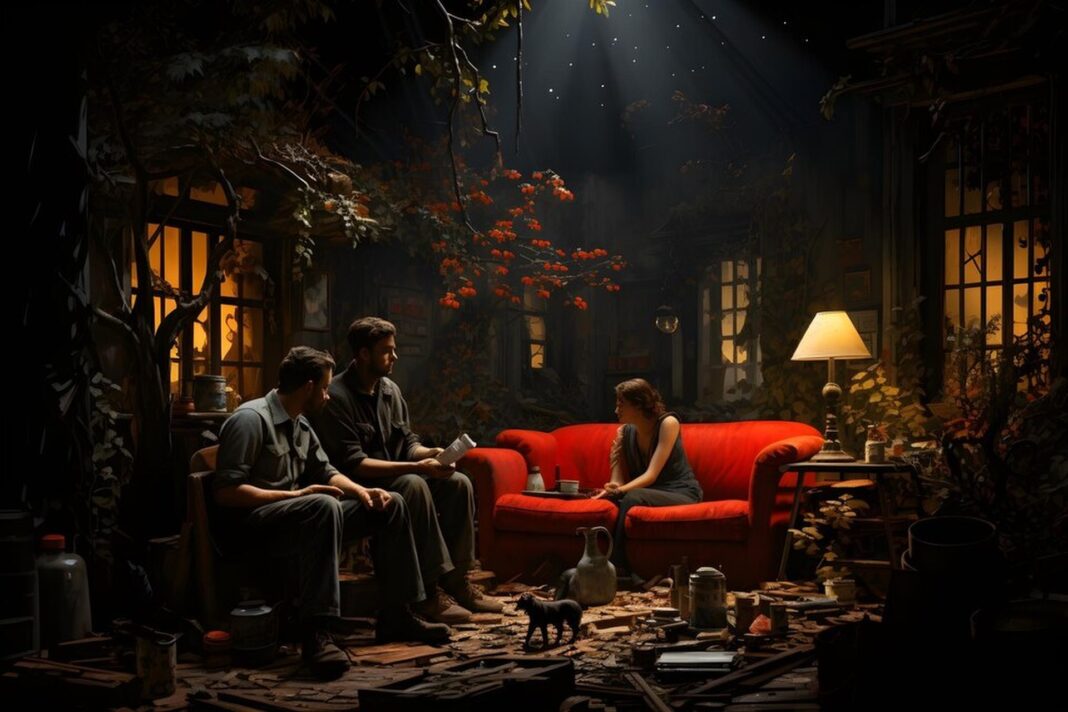Thrillers have fascinated audiences for decades. Their thrilling narratives keep spectators glued to the screen. The genre includes literature, films and web series. Each provides suspense and tension differently. Each twist and turn surprises and frightens and excites audiences. This article explores thrillers‘ appeal plot twists, narrative styles and development. The cultural influence and character development of thrillers will also be addressed explaining their global popularity.
Why Thrillers Capture Our Imagination
Thrillers tap into our deepest inclinations. They make us dread what is behind the scenes. Anticipation engages viewers. Every moment is suspenseful, generating an emotional roller coaster. This emotional connection may explain why thrillers captivate us.
This link involves escapism. Routine and predictability may make life dull. Thrillers disrupt the monotony. Dark subjects and intriguing situations may be explored without real life repercussions. The adrenaline rush of a good thriller is unmatched.
Additionally thrillers generally include complicated antagonists and ethically dubious individuals. This intricacy deepens storylines and keeps viewers wondering. Character motives and behaviors intrigue audiences. Each surprise expands the tale and draws viewers in.
Watching thrillers together enhances the experience. Friends and relatives like discussing and theorizing about story twists. Thrillers inspire emotional interactions. This collective curiosity boosts genre appeal.
Unforgettable Plot Twists In Thriller Series
A great thriller series needs plot twists. They startle and flip the tale. Many thrillers succeed by weaving elaborate stories that keep viewers wondering until the conclusion. Twists sometimes entail character reveals or storyline changes. They alter viewers‘ perceptions of the plot.
Westworld and The Girl with the Dragon Tattoo have great story twists. Both include surprising twists that change the tale. Revelations frequently change character motives and relationships. When seemingly opposing characters become partners the story changes. Such moments startle and astound spectators, boosting the genre’s exhilaration.
Memorable story developments can have an emotional effect. Unexpected twists may provoke strong emotions. Watching a cherished figure betrayed makes the encounter more unforgettable. These components spark audience discussion expanding the series‘ cultural reach.
Well done twists stick. Many internet interpretations and analyses turn viewers into active fans. An exciting storyline surprise may sustain a series for two or more seasons. Fans are loyal because of the anticipation of what comes next.
Exploring Different Styles Of Thriller Narratives
Different thriller genres use suspense and tension differently. Psychological thrillers examine characters‘ minds. These tales highlight the characters‘ inner motives. Intense mental games like cat and mouse are common. With episodes that examine the darkest side of human nature and technology Black Mirror nails this approach.
However crime thrillers explore law enforcement and crime. Detective investigations and wits are common in these stories. Mindhunter shows criminal psychology and the pleasure of the pursuit. Good and evil interact to generate suspense.
Action thrillers are thrilling and suspenseful. They frequently have thrilling chases, explosions and unrelenting pursues. 24 is an adrenaline rush where every second counts. Fans of this type want a fast tempo and thrilling action.
Horror thrillers combine dread with psychological or criminal stories. Their immersive experience blends fear and uncertainty. The Haunting of Hill House blends horror with psychology to create a warped world. Suspense is unique to each style enriching the thriller genre.
The Evolution Of Thriller Web Series
Thriller web shows have progressed greatly. Television and movies were the genre’s first focus. However streaming services have changed storytelling. There are several thriller series available to audiences. This transition has enabled new narrative methods previously constrained by conventional forms.
Web series‘ extended length and episodic narrative are benefits. In Bodyguard and other shows characters grow and stories unfold slowly. This pace lets artists create tension by more carefully engaging readers. Web series may explore darker subjects since they are less censored than cinema.
Popular thriller formats include anthology series. Diverse tales are possible since each episode or season may stand alone. American Horror Story follows this strategy introducing new ideas each season. This keeps programming fresh and compelling because viewers anxiously await what comes next.
The worldwide reach of streaming services has diversified thrillers. Multicultural thrillers are now on film. Indian and Spanish shows like Sacred Games and Money Heist show how cultural differences enrich storytelling. Globalized storytelling expands the genre with new topics, locales and characters.
Cultural Impact Of Thriller Shows
Popular culture values thrillers. They entertain and spark debate. Suspense justice and morality represent social concerns. Audiences typically relate fictitious character conflicts to real world ones. This relationship enhances content engagement.
Thrillers may remark on society. They address criminality, mental health and human rights. Dramas like Breaking Bad and The Handmaid Tale demand critical thinking. These programs‘ discussions may shape public opinion on important issues.
Merchandising and spin offs show their cultural significance. Iconic characters and plots generate products, fan art and conventions. Series devotion creates a feeling of camaraderie among fans. Discussion and insight sharing build ties around common interests.
Award recognition also emphasizes thriller programs. Prestigious prizes attract more people. Critical praise may boost a show’s popularity and affect genres. Thrillers influence culture and daily discussion.
Character Development In Thrillers
Creating unforgettable thrillers requires character development. Character growth adds depth and complexity to the plot. Characters emotionally engage viewers, raising the stakes. Engaging narrative requires well defined relatable characters.
Characters regularly confront moral challenges that test their principles. Inner struggle strengthens viewer connection. Trials shape characters exposing layers. Series like Dexter show this well as the main character balances his dark inclinations with his longing for a regular existence.
Storytelling hinges on antagonists. A good villain can make a thriller great. These challenges typically parallel the protagonist producing a complicated relationship. Hannibal Lecter charm and menace captivate and unnerve viewers.
Supporting characters enhance the story. They provide varied viewpoints and help the protagonist evolve. Character connections enrich the tale. The spectator connects with the characters‘ goals, anxieties and betrayal.
Impactful character arcs generate unforgettable experiences. Each character’s progress and decisions are interpreted differently by audiences. Character driven thrillers leave a lasting impression.
Which Thriller Series Should I Start With?
Given the many thriller series possibilities, choosing one might be difficult. Start with a combination of vintage and modern programs for genre beginners. Series like Mindhunter introduce well. It mixes psychology and reality. This is a scary and thought provoking combo.
Another great alternative is Breaking Bad. Professional character growth and moral complexity are shown. Walter White rise from high school teacher to drug king is captivating. It thrills and engages viewers.
The spooky story The Haunting of Hill House is rich and intense. Traditional horror and family relationships create a captivating atmosphere in this series.
Trying several techniques may reveal what works. Fan forums and reviews might help you choose. This investigation provides a fun introduction to suspenseful storytelling by revealing personal preferences.


